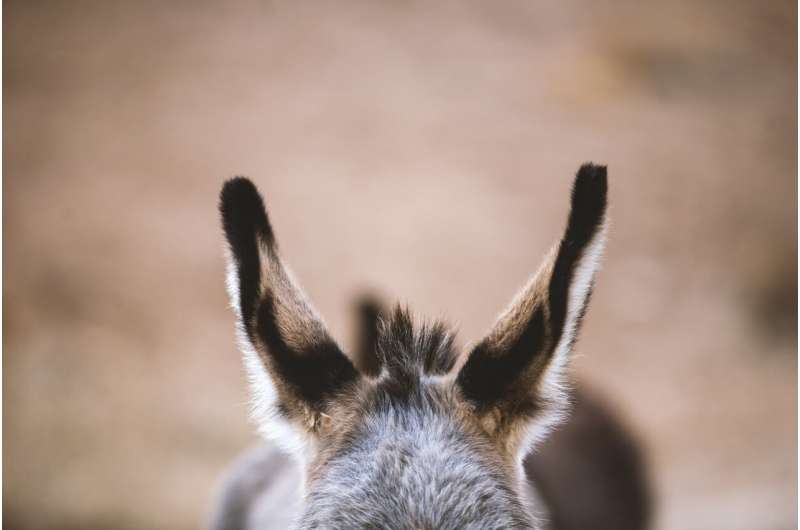
Worldwide, introduced non-native herbivores have the potential to threaten native ecosystems. For example, in western North America, uncontrolled numbers of feral horses and burros are threatening natural habitats and the native wildlife that rely on them. New research published in the wildlife research journal Wildlife Monographs documents the impact that non-native burros are having on plant and animal life in the Sonoran Desert of North America.
Investigators found that the presence of burros was associated with changes to long-lived plants important to the region. In areas with established burro herds, researchers documented lower ground cover, plant density, and foliage density, as well as smaller plant size in several species.
Of particular concern was that some differences were observed among “nurse plants” that protect young plants of numerous other species from harsh conditions, and that the Sonoran Desert’s iconic saguaro cactus was observed to have lower recruitment (fewer new saguaros added to the population) in areas with burros. The study also found lower abundance in some native wildlife species.
“Our study has relevance to other ecosystems where large non-native herbivores have become established,” said corresponding author Esther Rubin, Ph.D., of the Arizona Game and Fish Department. “In the Sonoran Desert, the current management of this feral equid may not be adequate for maintaining the long-term viability of this arid and fragile ecosystem.”
More information:
Associations Between a Feral Equid and the Sonoran Desert Ecosystem, Wildlife Monographs (2024). DOI: 10.1002/wmon.1083
Citation:
Why scientists are concerned about the effects of non-native horses and burros on natural ecosystems (2024, June 26)
retrieved 26 June 2024
from https://phys.org/news/2024-06-scientists-effects-native-horses-burros.html
This document is subject to copyright. Apart from any fair dealing for the purpose of private study or research, no
part may be reproduced without the written permission. The content is provided for information purposes only.




